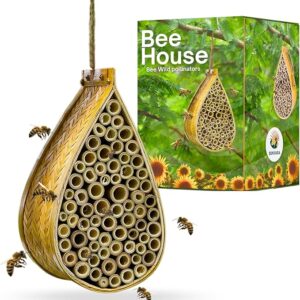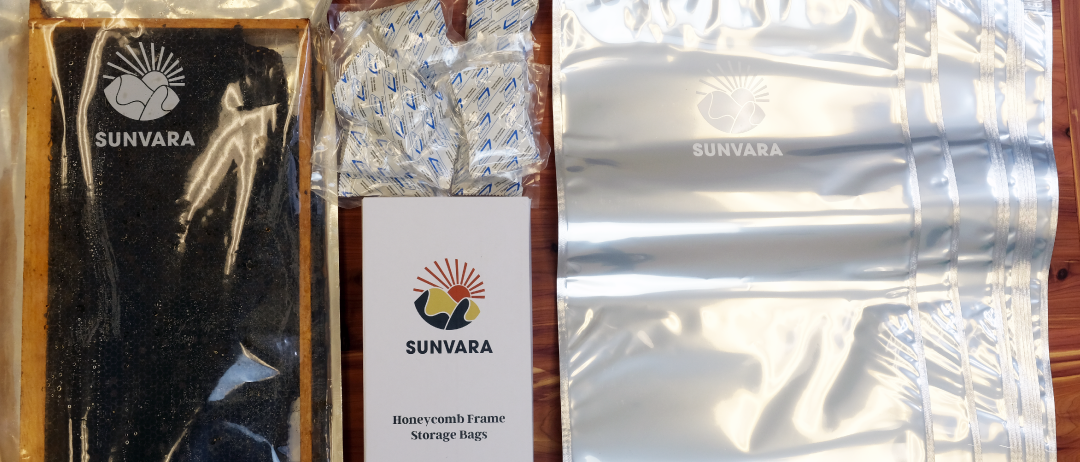If you’re getting ready to cultivate your spring gardening, you’ve come to the right place. In this guide, we’ll explore some essential tips for cultivating a bee-friendly garden that will beautify your surroundings and help your local ecosystem.
From a helpful list of bee-friendly plants and flowers to creating a perfect water source for pollinators, this guide will help you have a beautiful garden and a wonderful sanctuary for your local pollinators.
So grab your gardening tools, and let’s get down to work! 👩🌾
Choose bee-friendly plants
Spring is the season of blossoms, and bees adore plenty of flowers and plants. The first step in spring gardening is to have a variety of bee-friendly flowers, plants, and herbs to help your local pollinators. Read the lists below to learn what plants and flowers are good for bees.

Bee-friendly plants and flowers
- Anemones
- Lavender
- Lilacs
- Sunflowers
- Bluebells
- Dandelions
- Coneflowers
- Calendula
- Butterfly Weed
- Oriental Poppy
- Pentas
- Snapdragon
- Wisteria
- Zinnia
These plants provide nectar and pollen, essential for the bees’ survival.
Bee-friendly herbs
- Thyme
- Sage
- Mint
- Bee balm
- Valerian
- Rosemary
- Oregano
- Lemon balm
- Chives
💡 Consider planting various flowers that bloom at different times to provide a continuous food source for the bees.
Add a water source for bees
Bees need water for hydration and to regulate the temperature within their hives, especially now that the temperature is rising worldwide.
The best way to create a water source in your garden is by placing a shallow dish filled with water and stones or pebbles for bees to land on while they drink. You can also add floating cork or wood pieces to provide more landing spots and prevent drowning.
It is essential to include the stones, so don’t forget them!

This simple addition can significantly benefit the bees in your area, especially during hot and dry periods.
Avoid chemicals
If you’re new to gardening, you might be tempted to use chemical fertilizers, but we suggest you avoid them.
Pesticides, herbicides, and chemical fertilizers can harm bees and other insects, disrupt their behaviors, or cause a higher mortality rate. They can also harm your family.
Instead, opt for organic pesticides to maintain a healthy ecosystem. Use natural pest control methods, such as companion planting, crop rotation, or introducing beneficial insects like ladybugs and lacewings to keep pests in check.
Create nesting spots
It might be surprising to discover that some species of bee are solitary and nest on activities on trees, soil, or plant stems.
Our eco-friendly Bamboo Mason Bee House is a good option for attracting pollinators to your garden. Just hang it on a tree and wait for the pollinators to arrive!
These structures offer protection from predators and harsh weather conditions, and bees and other pollinators will help your gardens bloom.
With these simple tips, you can transform your garden into a haven for bees and other pollinators during the springtime. You will enjoy vibrant blooms and abundant harvest while playing a vital role in supporting pollinator populations in your area. Let’s create a bee-friendly and colorful world.
Happy gardening! 🌻











